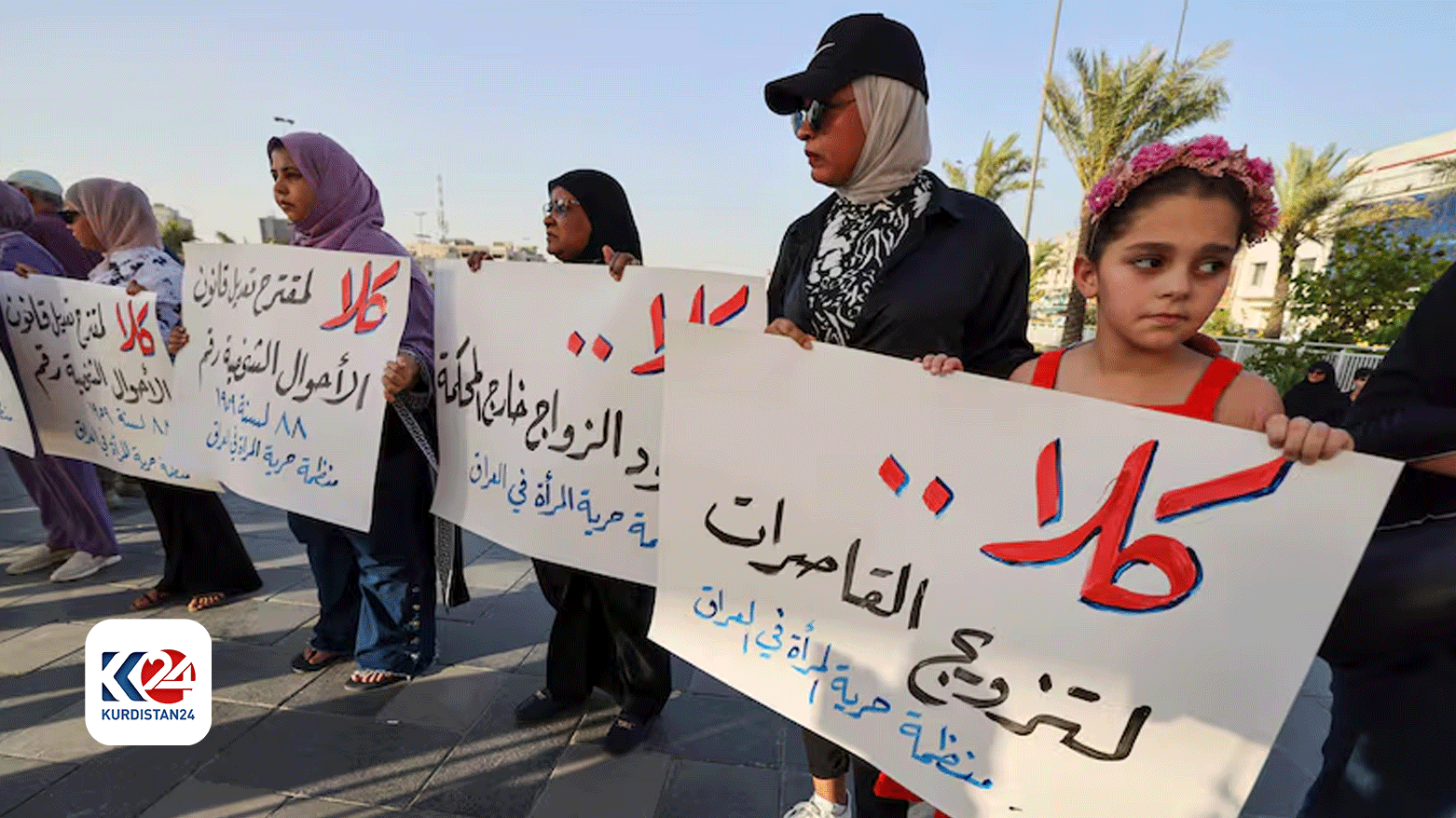Human Rights Watch warns of rising child marriages in Iraq amid controversial legal reforms
In a detailed report released ahead of proposed changes to Iraq’s personal status law, Human Rights Watch revealed that 28% of girls in Iraq are married before the age of 18.

ERBIL (Kurdistan24) – Human Rights Watch has issued a stark warning about the growing prevalence of child marriage in Iraq, a practice that violates the country’s Personal Status Law and represents a significant setback for human rights.
In a detailed report released ahead of proposed changes to Iraq’s personal status law, Human Rights Watch revealed that 28% of girls in Iraq are married before the age of 18. Alarmingly, 22% of these marriages are unregistered, conducted outside of legal frameworks, and often involve religious figures who perform the ceremonies without questioning their legality.
The report sheds light on the severe consequences of child marriage, which deprives young girls of education, limits their opportunities, and exposes them to significant health risks. According to the organization, many of these underage marriages result in girls being unable to access necessary medical care, including safe childbirth in hospitals, putting both their lives and the lives of their future children at risk.
The situation is exacerbated by the lack of a valid marriage contract in these informal unions, which denies married girls and their children access to vital services and legal protections. Human Rights Watch emphasized that without birth certificates, children from these marriages are unable to obtain official documents, attend school, secure employment, own property, or enter into legal marriages themselves.
The organization’s 37-page report also highlighted the broader impact of this growing trend, including a significant rise in sexual and physical violence against young brides over the past two decades. This violence has had profound effects on the physical and mental health of these girls, further compounding the challenges they face.
Human Rights Watch called on Iraqi authorities to take urgent action to stop the practice of child marriage and uphold the rights of women and children. The report also warned against adopting the controversial personal status law amendment, which could further erode protections for underage girls.
Iraq’s 1959 Personal Status Act clearly states that child marriage is illegal, and any marriage conducted outside of an official personal status court is considered informal and invalid. However, the growing number of unregistered marriages suggests that these legal protections are being routinely ignored.
The report also touched on the economic consequences for women involved in these illegal marriages. Divorced couples in such unions are often ineligible for monthly government benefits and cannot seek alimony, leaving women particularly vulnerable.
Human Rights Watch’s findings underscore the urgent need for stronger enforcement of existing laws and greater protections for young girls in Iraq, as the country grapples with this deeply concerning human rights issue.